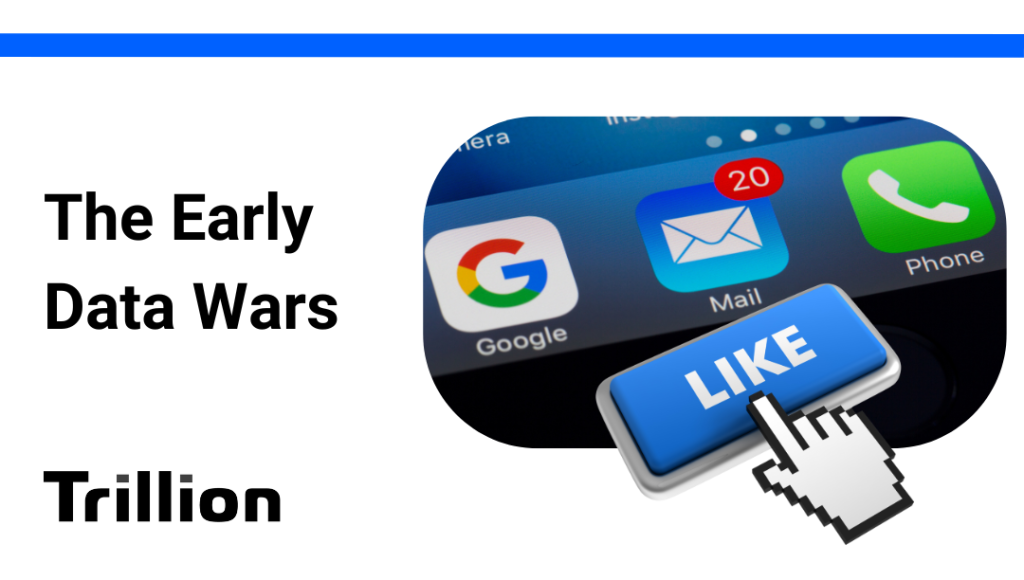
The digital advertising landscape has undergone a dramatic transformation over the past decade, and much of it can be traced back to the early battles over data. Google and Facebook, two of the largest platforms in the world, not only drove unprecedented growth in online advertising but also reshaped the conversation around transparency and accountability.
At Trillion, we’ve observed how these early data wars set the stage for today’s performance-driven marketing strategies. Understanding this history helps marketers appreciate the tools and analytics that make modern campaigns both measurable and effective.
The Rise of Google and Facebook Advertising
In the mid-to-late 2000s, Google and Facebook emerged as dominant advertising platforms. Google’s search ads allowed brands to reach audiences at the exact moment they were searching for products or services. Facebook, on the other hand, introduced highly targeted social ads based on user interests, behaviors, and connections.
While these platforms offered incredible reach and targeting precision, they also created a new challenge: how much transparency should advertisers have into their own campaigns? Early marketers often received aggregated metrics without granular insight, making it difficult to fully understand performance or optimize effectively.
Transparency Becomes a Competitive Edge
As marketers demanded more clarity, Google and Facebook responded by gradually increasing the availability of detailed reporting tools. Features like click-through data, conversion tracking, and audience insights became standard, enabling marketers to see not only what was happening but why it was happening.
This push for transparency sparked what some have called the “early data wars” — a period when platforms competed not just for ad dollars, but for credibility and trust. Brands began comparing the accuracy of reporting, questioning the reliability of metrics, and demanding standards for accountability.
Reach out to the team at Trillion to help optimize performance-driven marketing strategies.
Impact on Modern Marketing
The ripple effects of these early battles are still felt today:
- Performance-Based Marketing: Greater transparency allowed marketers to link ad spend directly to results, paving the way for performance-driven models like CPC (cost-per-click) and CPA (cost-per-acquisition).
- Data-Driven Decision Making: Detailed reporting empowered marketers to refine targeting, creative, and placement strategies based on insights rather than intuition.
- Affiliate and Partner Marketing Growth: Transparency in reporting made it easier to track and reward partners accurately, fueling the growth of affiliate networks and influencer campaigns.
- Consumer Trust and Privacy Awareness: Early transparency initiatives laid the foundation for today’s privacy-conscious advertising environment, striking a balance between targeted marketing and user consent and trust.
Lessons for Marketers Today
For modern marketers, the early data wars are a reminder that access to accurate, actionable data is crucial for campaign success. By leveraging platforms that prioritize transparency, brands can optimize spend, improve audience targeting, and drive measurable ROI.
At Trillion, we integrate these principles into our approach, combining advanced analytics, predictive modeling, and transparent reporting to help brands maximize performance across all digital channels.
As the digital landscape continues to evolve, marketers who prioritize data clarity and accountability will be better positioned to create campaigns that not only perform but also build trust with their audiences.